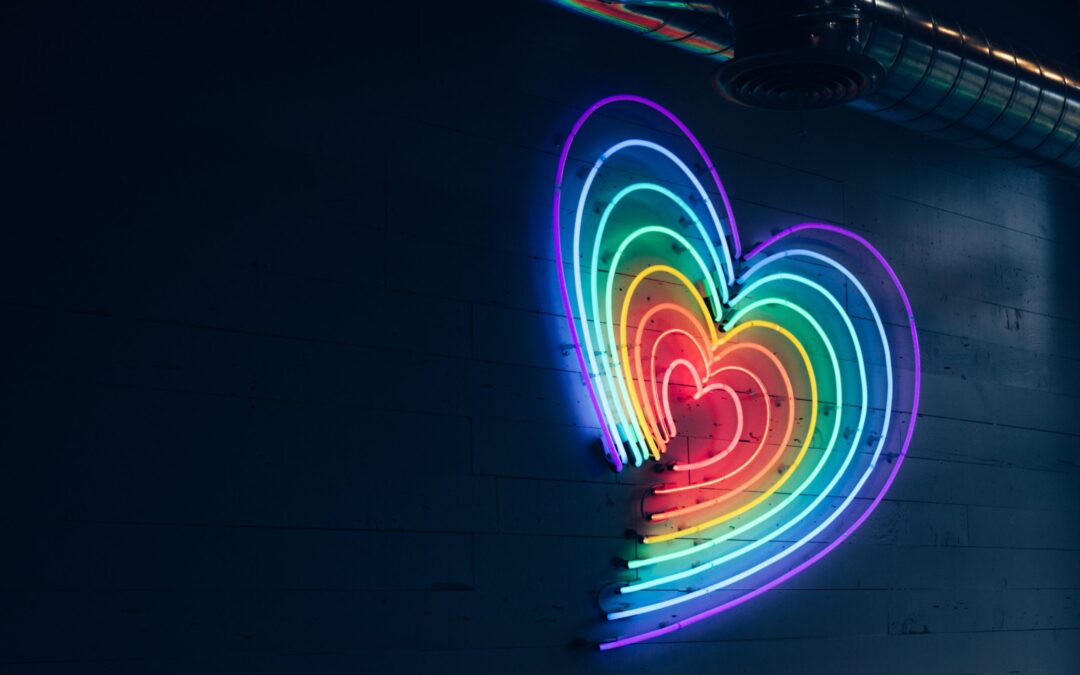When someone in your life comes out to you as LGBTQ+, it can often be difficult to know how to navigate the situation if it’s something you’ve never done before. There’s a good chance the other person isn’t sure how to do this either. But there are a few simple ways you can make your friends or family feel loved and supported throughout this process.
#1. Do Your Research
If this is completely new terrain for you, learn how to navigate it. Reading this article is a good first step. Constantly fielding questions about your identity and dealing with insensitive and uninformed comments can be exhausting.
Some simple research will allow you to be a support rather than a drain for your loved one. It’s not that complicated, and you don’t have to know everything. Just putting that effort in and coming to the table with some awareness is a gesture that will mean a lot to your loved one.
Some good resources to get started with are:
- PFLAG: an organization for families and allies, providing resources and information as well as community to help families support their loved ones.
- GLAAD: A list of resources for allies and friends compiled by GLAAD, An LGBTQ+ media organization.
- The Family Project: Resources to help you be a supportive parent to LGBTQ+ children created by San Francisco State University.
#2 Respect Their Privacy
Don’t ask about gay or lesbian sex (you’d be surprised how often people actually think it’s okay to do this. If you feel the need to know, Google is your friend.) Don’t ask a transgender person about their genitals or surgeries. Just be respectful and treat them how you would everyone else, boundaries included.
You wouldn’t ask a cisgender heterosexual person about their genitals or sex life, and the LGBTQ people in your life would appreciate you extending that same courtesy to them.
#3 Don’t Avoid the Topic or Pretend like it Doesn’t Exist
Show an interest in your loved ones lives the same way you did before you knew they were LGBTQ+. If you used to ask your daughter about her love life, don’t completely avoid the topic now because you know she’s a lesbian. This can be hurtful and make a person feel like you don’t really accept them.
If you aren’t sure where the line is between respecting their privacy and showing interest and acceptance of them, sit down and talk to them. It’s better to have an awkward conversation than to make your loved one feel like you would rather pretend a part of them didn’t exist.
 #4. Vocalize Your Support
#4. Vocalize Your Support
Vocalize your support, even if you’re sure they know that you love and support them. They may not know, or they may be doubting it. Even if they do, it’s nice to have a reminder sometimes. Both coming out and existing in the world as an LGBTQ+ person can be difficult, and reassurance is always appreciated.
Remember that there are different ways of showing you love someone. If words aren’t how you usually show love and support for this person, this doesn’t mean you need to start gushing about it. You can show support through actions as well.
#5. Stand Up For Them
If someone is saying something rude about the LGBTQ+ community, even if it’s not specifically directed at them, say something. If they see that you’re okay with those sentiments when applied to other people, why wouldn’t they assume that you think that applies to them as well? You don’t have to cause a scene, but you should say something. Don’t leave the burden to them. If you love them, this is your fight, too.
#6. Don’t Question How They Express Their Identity
It’s not your place to say that they’re being too ‘loud’ with their sexuality, or that they’re too ‘in your face’ about their identity. There are a lot of places where people are not able to be open with their identities, and if your loved one feels like they can be, that should be celebrated.
For a long time, it wasn’t really an option to be open, and now that we can be, many of us choose to celebrate it. That is their decision to make, and it has nothing to do with you. If they don’t feel a need to hide, please do not make them feel ashamed or like they need to hide.
It doesn’t take much to be a real ally and support system for the LGBTQ people in your life, and a little effort goes a long way. They aren’t expecting you to be perfect and you shouldn’t expect that from yourself either. You will probably mess up, but it will be okay as long as they know that you love them and that you are trying.

